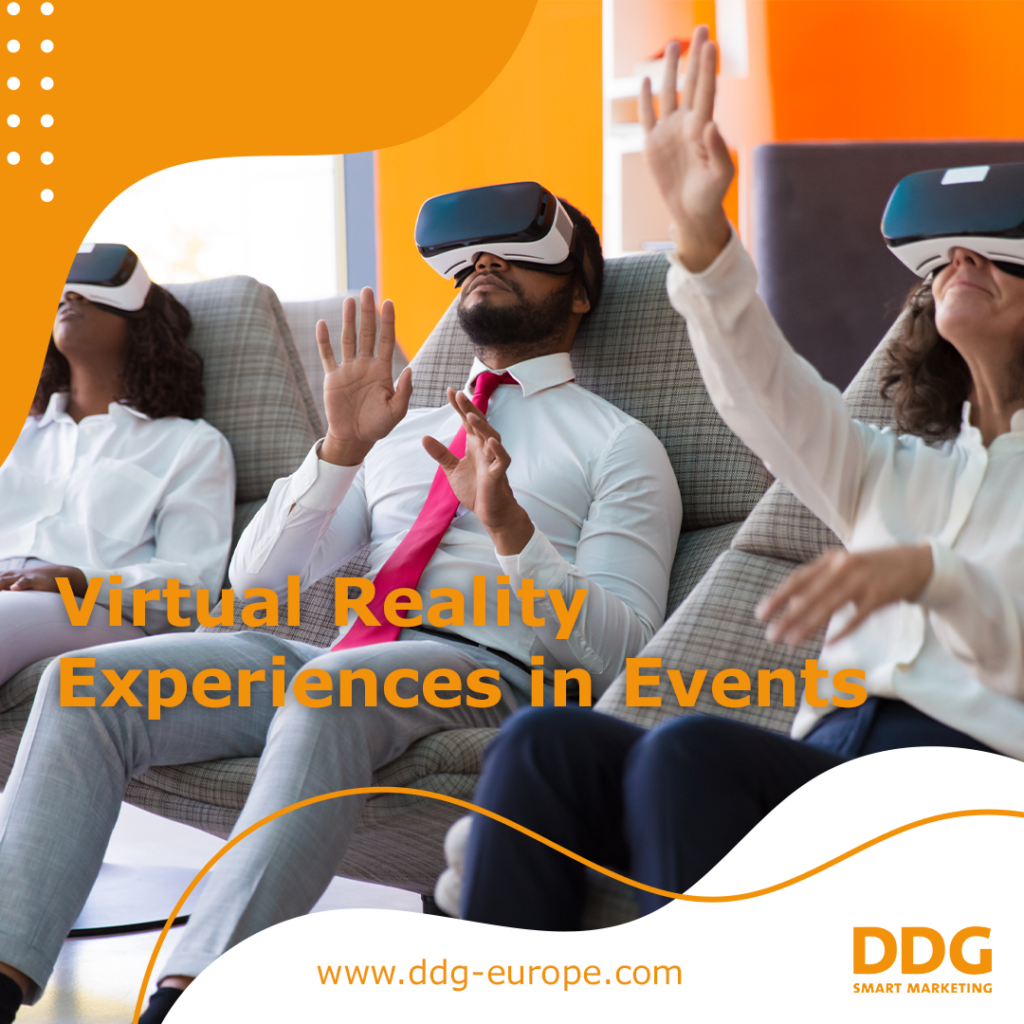Virtual Reality Experiences in Events
By now, it’s widely acknowledged that the incorporation of Virtual Reality Experiences in Events is not a passing topic but a lasting innovation that we need to embrace and work with. This transformative technology opens an entirely new realm for individuals to immerse themselves in event environments, making it an indispensable tool for event professionals and project managers to understand.
We’ve outlined the essentials that event professionals should understand about VR in the event industry, from content creation and the technology delivering it to leveraging VR to engage audiences and meet the objectives of their meetings or corporate events.
How Virtual Reality is Being Used in Events
Creating VR experiences for events has presented challenges, yet we’re witnessing a notable increase in the usage of virtual reality both during event planning and at the events themselves. Virtual Reality stands out as one of the few technologies capable of delivering fully immersive experiences, made more accessible by VR rental companies offering affordable options for event organizers.
Here are some ways event planners are seamlessly integrating VR into their events:
VR for Venue Visits
Virtual venue visits have become a necessity in the comeback of in-person events and the fall of hybrid events. Offering 360º tours, these VR visits prove to be a time-efficient and sustainable alternative, reducing the carbon footprint associated with travel.
VR for Virtual Events
While virtual events have their advantages, they often lack the immersive quality that VR can provide. VR experiences at virtual events offer attendees engaging and fully immersive experiences, contrary to the misconception that VR activities are isolating.
VR for Networking
Networking is an essential aspect of events, and VR introduces new possibilities for interactive and engaging virtual networking. Platforms like VRChat and Facebook’s integration with Oculus headsets have revolutionized virtual networking, turning traditional activities into dynamic VR experiences.
Virtual Trade Show Booths
VR technology redefines the traditional trade show experience by offering a virtual alternative. Attendees can explore booths, interact with products, and engage in real-time conversations with exhibitors, providing convenience, accessibility, and a global reach.
Interactive Presentations
VR transforms presentations into interactive and immersive experiences, bringing virtual objects to life and making complex concepts more accessible. This not only boosts attendee engagement but also enhances knowledge retention beyond traditional PowerPoint slides.
Gamified Experiences
Gamification, a powerful engagement tool, reaches new heights with VR. Attendees can participate in interactive challenges, scavenger hunts, and simulations, fostering excitement, collaboration, and shared experiences.
Embracing VR in Event Industry
While VR has its limitations, ongoing rapid developments suggest solutions to current challenges. VR stands out as an eco-friendlier option for immersive experiences compared to onsite events. Leveraging virtual trade show booths, interactive presentations, and gamified experiences enhances engagement and connectivity, making VR a trend to anticipate in 2024.
What are your thoughts on VR in the events industry? We invite you to explore the limitless possibilities by contacting us. Embrace the VR revolution and elevate your events to new heights!

